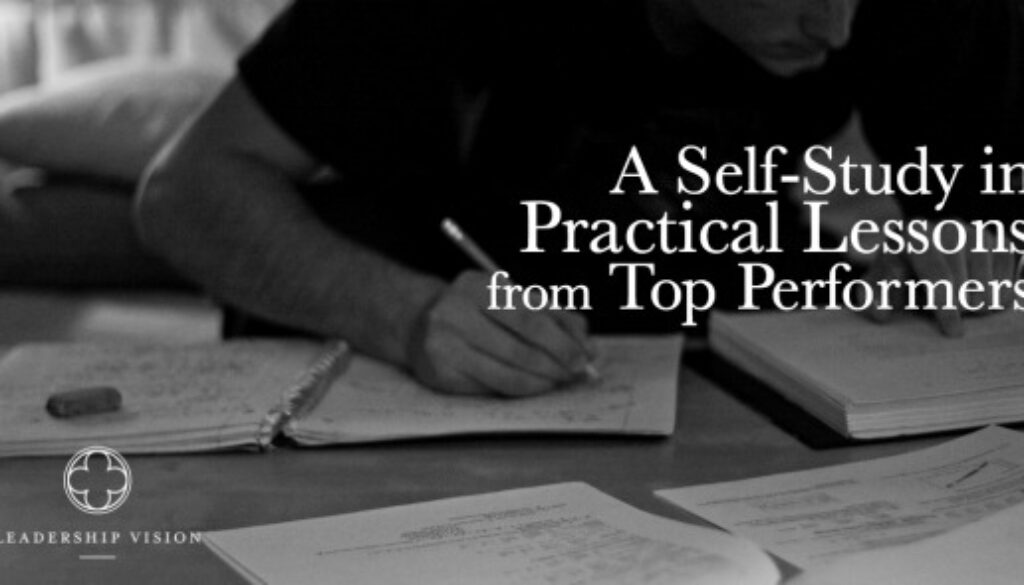A Self-Study in Practical Lessons from Top Performers
During the past 15 years, I have learned a lot about how people are successful. Top performers in any industry have things in common that we can all learn from. Two things that have been clear since my original StrengthsFinder training in 2001 are:
- High performers focus on their greatest areas for success, in whatever setting they are in. They manage their weaknesses, but do not focus on them.
- There isn’t ‘one way’ to be anything. High performers find ways to be successful. For example, there could be two gifted teachers who have very different strengths, but use those strengths to become equally successful, in their own way.
Figuring Out What You Have
These two points have guided a lot of my thinking and teaching over the past 15 years. They are some of the most freeing and liberating thoughts that are part of everything we do at Leadership Vision.
Why?
Because you don’t have to have a specific set of strengths to be successful. You have to figure out what makes you “uniquely you,” how to maximize what already exists as patterns of thoughts, feelings or behaviors in your own brain and being. That is amazing!
Equally amazing is that different people can be successful in the same role with totally different talents. Gone are the days of saying, “I can’t do that because I am not like so and so…” We live in a time when you can find out what makes you tick, what you are good at, and how you can do more with your natural abilities – that is exciting to me, is it to you?
Making Observations from High Performers
During the past year and half, I have worked with dozens of people through 1-to-1 conversations. These people are thinking about and using their strengths in their roles.
In any group we work with, a few people really stand out. Those are the top performers. They are easy to spot and usually receive good feedback from their peers and managers.
These people relentlessly focus on what they are good at, and team with other people to do what they are not good at. They always use their talents to get done what they are asked to do and more.
A lot of them have mentors guiding them through their careers. Many are also helping emerging leaders grow in their strengths to be successful in their careers.
We at Leadership Vision believe when you apply your strengths in a generative way, they will bring life to the people around you. High performers who mentor up and coming leaders are doing this with their talents.
Asking Myself These Questions
Being around all these successful people in various industries is forcing me to evaluate how I am doing in my own career. Here are a few questions I have been asking myself lately.
Do I bring life to other people on my team?
You would have to ask those that I work with, but I believe I do my best to help our team focus on what is important and help continue to move us forward as an organization.
Do I mentor leaders in our industry?
I am currently mentoring our first “apprentice.” As a company we are focusing on next generation leaders who will become strengths experts. One of my top responsibilities as a leader is to find and train someone who can eventually replace me in my current role.
Do I relentlessly focus on what I am good at while teaming with people who have strengths in areas that are not strengths for me?
Every day I try and get done whatever needs to get done that will have a significant impact for the work we do. Having the strength of Significance gets me out of bed in the morning and runs through my brain most of the day. It is the inner drive and filter that is with me constantly.
The minute I forget about this, I can head down paths that might not be worth my investment. I have not figured this all out yet, but I am trying to focus on what I am good at for the majority of my day.
Ask Yourself
So, do you focus on your greatest areas for success? Have you figured out your own way to be successful instead of comparing your strengths to those around you? What strengths make you uniquely you? How do you manage your weaknesses, without focusing on them?





